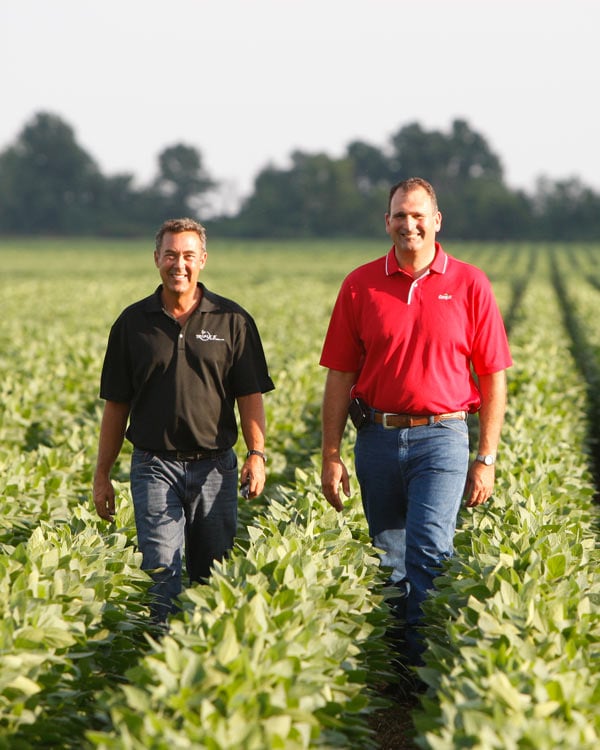Renewable Fuels
Accelerating the shift to a more sustainable food transportation system
Transportation accounts for 14% of global greenhouse gas emissions and 19% of the food supply chain’s carbon footprint. We must transport food and other vital goods around the world more sustainably and through a span of lower-carbon fuel and energy sources.
From our place at the center of the agricultural supply chain, Cargill is uniquely positioned to support this shift. We are partnering with customers to provide a range of feedstocks for biomass-based diesel, renewable diesel and waste-based solutions. And we’re also leveraging renewable fuel solutions in our own operations, such as our ocean transportation business, which charters around 650 vessels at any one time.
We are committed to accelerating this transition to lower-carbon fuels in a thoughtful, balanced manner – working alongside farmers, customers and other supply chain partners to drive near- and long-term progress.
A balanced approach
Decarbonization of the transportation sector is critical to reducing greenhouse gas emissions across all sectors, including agriculture, which relies on trucking, rail, barge and ocean-freight to connect supply chains and deliver food, feed and fiber the world needs.
The scale and urgency of the climate challenge means that we need a range of solutions to drive change. That’s why in our ocean transportation business, we’re pursuing multiple pathways, including trialing wind sails and backing some of the first methanol vessels to enter commercial service.
We believe the shift to lower-carbon energy sources requires near-term solutions such as renewable fuels derived from crop-based feedstocks and second-generation biofuels alongside investments in longer-term solutions such as electrification, green hydrogen and others.
Renewable fuels can play a crucial role in this energy transition. When produced responsibly, lower carbon renewable fuels derived from feedstocks, such as corn, soy or canola, are viable and near-term options until alternative technologies are available at scale.
As we navigate the energy transition and explore a range of solutions to power the movement of food and products more sustainably, we must do so with an approach that’s balanced and regionally-suited. This means tailoring solutions to local markets based on the most readily available feedstocks and local regulation, while never wavering from our primary purpose of nourishing the world.

Powering the movement of food through more sustainable fuels
Biofuels play an important role in the energy transition, and when produced sustainably, can create shared benefits at the farm and on the shelf, while paving the way toward a decarbonized transportation system.
This is particularly important for agriculture because trucks move the majority of agricultural goods, and renewable biofuel is the most effective solution to deliver carbon reductions today.
To support customers in the emerging renewable diesel market, Cargill offers a variety of feedstock options in addition to conventional renewable fuel derived from corn ethanol. And with our commitment to scaling regenerative agriculture practices with farmers, we’re improving the sustainability profile of these feedstocks and lowering the carbon intensity of renewable fuels.

Investing in waste-to-biofuel for a circular economy
Cargill is investing and commercializing emerging technologies that will enable the clean energy economy of the future. These technologies include “second-generation” biofuels made from used cooking oil, tallow and other food waste. Our waste-to-biodiesel facility in Belgium is one of the largest biodiesel plants in Europe. The facility will produce 115,000 metric tons of advanced biodiesel each year to support the maritime and trucking sectors in their decarbonization efforts. This will reduce greenhouse gas emissions by 418,000 metric tonnes, which is equivalent to removing 90,000 cars off the road.
We’re also investing in renewable biofuels where the majority of food miles take place – on the water. Last year alone, our ocean fleet used nearly 16,000 tons of biofuels to move food and freight around the world, the vast majority were blends made from waste products that produce up to 20% less greenhouse gas emissions.

